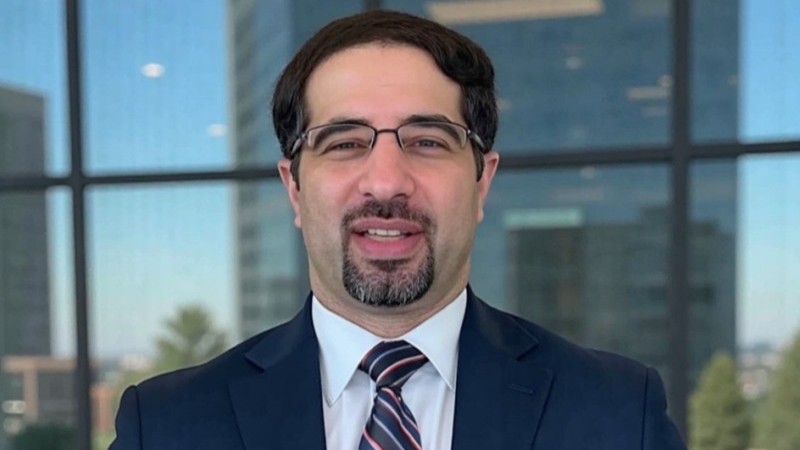
Al-Ola Abdallah: Bispecific Antibody Therapy in CNS Myeloma
Al-Ola Abdallah, Associate Professor and Plasma Cell Disorder Program Director of the Division of HMCT at the University of Kansas Medical Center, shared a post on X:
“Bispecific antibody therapy in CNS myeloma: Early evidence from a multicentre cohort
Congrats to Samer Al Hadidi, Mansi Shah․
New data on bispecific antibodies (BsAbs) in CNS multiple myeloma (CNS-MM) – a rare, aggressive manifestation of MM with historically poor outcomes. Here’s what a multicenter retrospective analysis found:
CNS-MM overview:
- Occurs in ~5–10% of MM cases
- Median OS historically 4–7 mo; now ~12 mo since 2016
- Patients: younger, high-risk cytogenetics (78% in this study)
- Challenges: BBB limits drug penetration, exclusion from trials
BsAbs in RRMM: ORR 60–70% in prior studies.
But pivotal trials excluded CNS-MM.
This study: 9 heavily pretreated patients (78% penta-refractory, all prior autoHSCT, 44% prior CAR-T).
- 8 received talquetamab (GPRC5D)
- 1 received teclistamab (BCMA)
Efficacy (CNS response):
- 6 evaluable patients – 100% CNS response rate
- Median time to best CNS response: 10 wks (after ~6.5 doses)
- Importantly: Some responses occurred before any CNS-directed therapy, suggesting intrinsic CNS activity
Case highlights:
- Pt4: CSF plasma cells low 498 – 74 in 1 week on talquetamab, before IT chemo/RT
- Pt9: Teclistamab – radiographic CNS response at 12 wks, no CNS-directed therapy
Systemic: 100% ≥VGPR among evaluable patients
Safety:
- No ICANS observed
- CRS limited to grade 1–2 (44%)
- Contrast: higher neurotoxicity risk seen in CNS lymphoma with CAR-T
- Likely due to low/no BCMA and GPRC5D expression in brain tissue
Why BsAbs may be advantageous over CAR-T in CNS-MM:
- Off-the-shelf – rapid initiation
- Dosing flexibility (pause/adjust if toxicity)
- Critical for CNS-MM, where time-sensitive control prevents neuro decline
Limitations:
- Small sample (n=9)
- Short follow-up
- Confounding from concomitant CNS-directed therapies
Future: Prospective trials with larger cohorts and standardized CNS response criteria needed
Takeaway:
BsAbs show promising CNS activity in heavily pretreated CNS-MM:
- Rapid and deep responses
- Manageable safety
- Practical advantages over CAR-T.”
More posts featuring Al-Ola Abdallah.
-
Challenging the Status Quo in Colorectal Cancer 2024
December 6-8, 2024
-
ESMO 2024 Congress
September 13-17, 2024
-
ASCO Annual Meeting
May 30 - June 4, 2024
-
Yvonne Award 2024
May 31, 2024
-
OncoThon 2024, Online
Feb. 15, 2024
-
Global Summit on War & Cancer 2023, Online
Dec. 14-16, 2023
